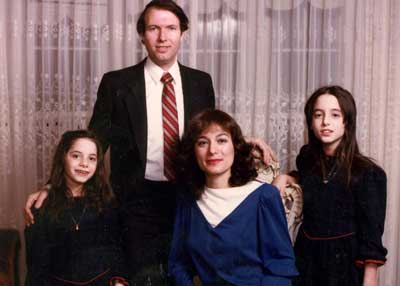By A. G. SULZBERGER
New York City agreed on Thursday to pay $9.9 million, the largest personal settlement in its history, to a man who served almost two decades in prison but was released after evidence surfaced that he had been framed for murder by a corrupt detective.
The man, Barry Gibbs, had served 19 years in prison when his conviction was overturned in 2005 after questions were raised about how his case had been handled by Louis J. Eppolito, a New York City police detective, one of the notorious “Mafia cops” serving life in prison for taking part in mob-related killings.
Mr. Gibbs sued the city in 2006, and a civil trial was scheduled to begin this month in United States District Court in Brooklyn.
“The settlement I’m happy with; it was my bottom-line settlement,” Mr. Gibbs said in an interview, sounding almost indifferent to the news. “They are permanent scars,” he added. “It’s been a long road. I’ve been through a lot, and it was very traumatic for me.”
Mr. Gibbs, 62, who has recently wrestled with severe health problems, previously received a $1.9 million settlement from the state.
The conviction stemmed from the 1986 killing of a 27-year-old prostitute, who was strangled and dumped near the Belt Parkway. Mr. Eppolito led the investigation, and he quickly zeroed in on Mr. Gibbs, a postal worker who was struggling with drug addiction and previously had a relationship with the woman. Mr. Gibbs was sentenced to 20 years to life in prison.
Mr. Eppolito and a former partner, Stephen Caracappa, were arrested on federal racketeering charges in 2005, accused of being paid by members of the Luchese crime family to pass along information about law enforcement investigations and of taking part in killings for the mob.
The original case file for Mr. Gibbs was found in Mr. Eppolito’s home in Las Vegas, where he had stored it illegally.
After a key witness told investigators that Mr. Eppolito had forced him to falsely identify Mr. Gibbs, a Brooklyn judge overturned the conviction.
Mr. Gibbs filed a sweeping civil rights lawsuit that claimed Mr. Eppolito “deliberately fabricated witness statements and police reports, withheld material, exculpatory evidence from prosecutors and intentionally failed to conduct an adequate investigation,” as well as beat Mr. Gibbs to elicit a false confession.
Lawyers for Mr. Gibbs said they believed that Mr. Eppolito focused the investigation on Mr. Gibbs because he was trying to protect the real killer, who might have had mob ties.
They said the Police Department had enough information to fire Mr. Eppolito years earlier, pointing to an investigation of Mr. Eppolito that resulted in no disciplinary action, even though it was determined that police documents that had been leaked to a mobster carried Mr. Eppolito’s fingerprints.
“It’s a horrible injustice,” said Barry C. Scheck, one of Mr. Gibbs’s lawyers and a co-director of the Innocence Project at the Benjamin N. Cardozo School of Law. “He was in prison close to 19 years, and he was framed by one of the worst cops that ever served in the New York City police force, a man who disgraced the badge.”
(The Innocence Project helped get Mr. Gibbs’s verdict overturned, but Mr. Scheck represented Mr. Gibbs in his lawsuit through his private firm and will receive one-third of the settlement, the standard contingency fee.)
In hearings on the lawsuit, New York City maintained that Mr. Gibbs was guilty of the crime. The city would not go into detail about why it decided to settle, but released a statement that said, “We have agreed to settle this case and believe it is in the best interest of all parties.”
It was the largest individual settlement the city has ever paid, said Connie Pankratz, a spokeswoman with the city’s Law Department. The next largest, $9.5 million, went to Maria Tipaldo in 2006. She was rendered a quadriplegic when her car was hit by an oncoming vehicle on a Brooklyn bridge that had no median divider despite having a history of crossover accidents.
Franklyn Waldron, a Brooklyn handyman, received an $8 million settlement in 2000 after he was shot by a police officer and paralyzed.
Abner Louima, who was tortured with a broken broomstick while in police custody, received $7.125 million from the city in 2001 and $1.625 million from the police union.
Since his release, Mr. Gibbs said, he has reconnected with his son and three young grandchildren. He is engaged to a childhood friend from Brooklyn, and is recovering from surgery for colon cancer and attending therapy regularly.
Mr. Gibbs even attended a sentencing hearing for Mr. Eppolito and Mr. Caracappa, who are serving life plus 100 years in prison, during which he was escorted out for yelling: “Do you remember me? I’m the guy you put away for 19 years!”
Mr. Gibbs planned to celebrate with his lawyers on Thursday night.
“I’m surviving in this world out here,” he said. “It’s not easy readjusting to this life. Computers, phones, cars, everything — it was overwhelming to me when I first got out. Now I just flow with it.”
Mr. Scheck said that during a deposition in 2008, Mr. Eppolito repeatedly proclaimed that he had been framed. “He kept on saying: ‘You know I’m innocent. I’m a case for the Innocence Project.’ ”.

